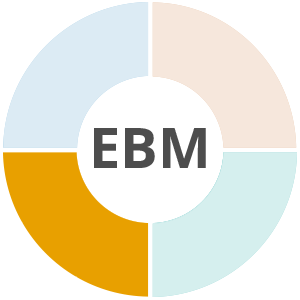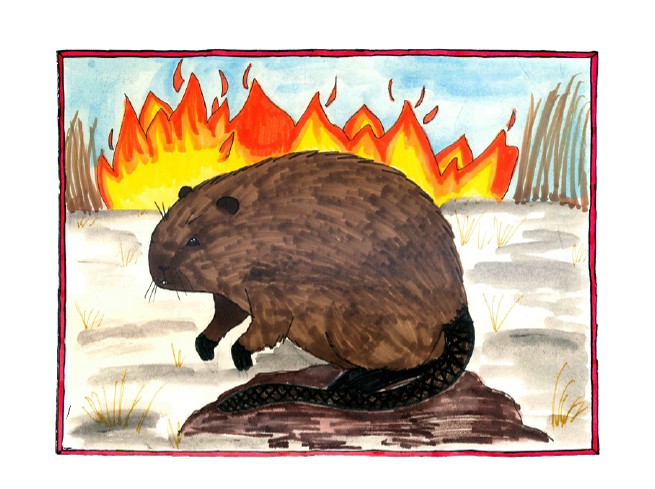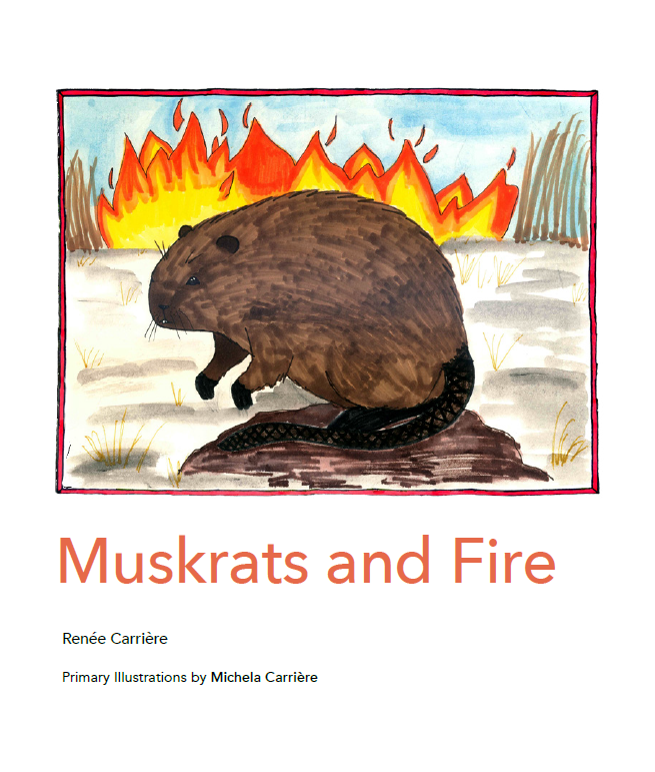Overview
Taking action on EBM is about the big and little things. Indigenous communities have been using fire for millennia to manage landscapes so that the ecosystem provides important goods and services. River deltas, an important source of fur bearing mammals, are more productive if they are burned seasonally. This is an oral history project that restores this practice, the culture and the ecosystems that serve it.
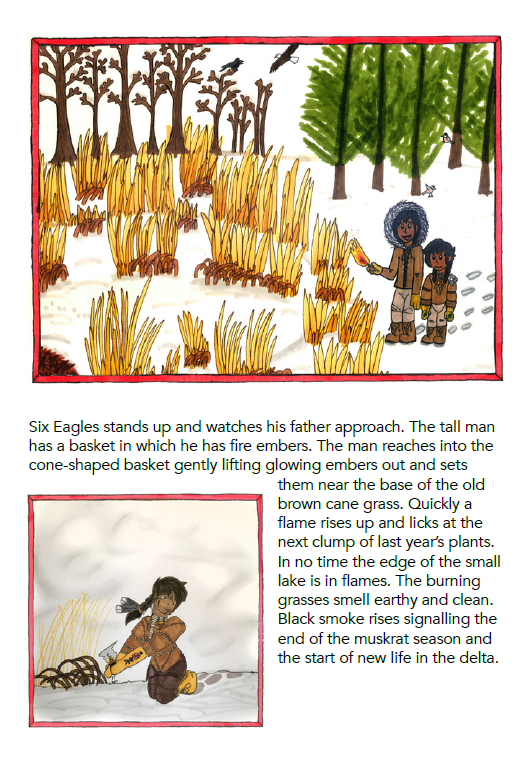
Image credit: Michela Carrière
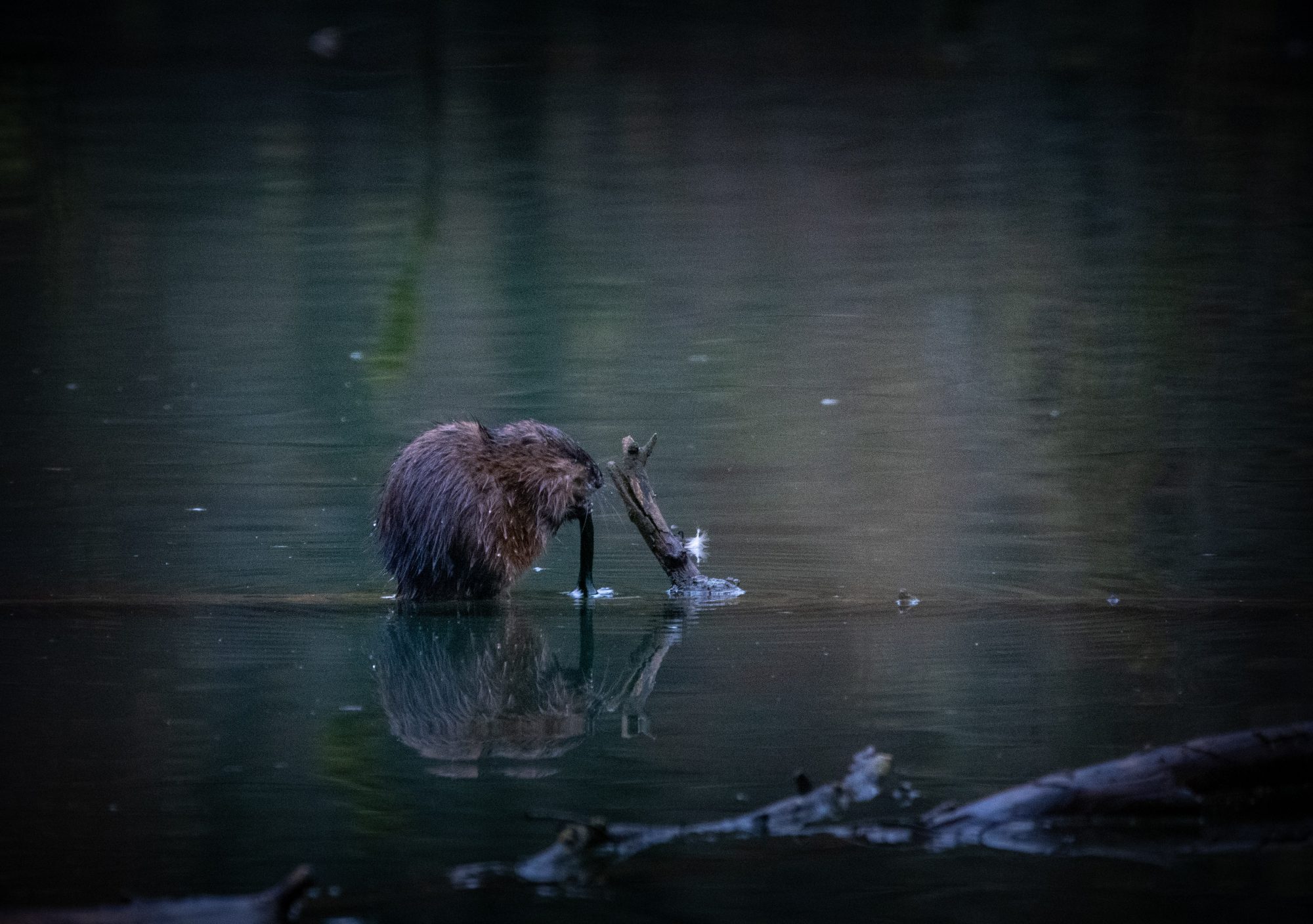
Photo credit: Mathias Elle, Unsplash.com
Innovation
This was a community-based, educational research project that resulted in an illustrated book with school children as an audience. So often the outcome of forestry research is a dry report that speaks to other foresters and perhaps government policy makers. But Renée Carrière knew a different, important group. Understanding that the connection between Indigenous practices and fire were getting lost, she designed her outreach to renew that connection, using a simple story that would reach a critical audience: the Indigenous youth who live in western Canada’s river deltas.
If you would like to purchase a copy of Renée Carrière’s book, please visit the McDowell Foundation’s website.
Discovery
The result of this program was an illustrated children’s book that everyone interested in ecosystems, fire and Indigenous traditions should read. Built into the Saskatchewan educational curriculum, this book recounts the practice of using prescribed fire to manage wetland landscapes as a story of an Indigenous family over hundreds of years. It also notes how this practice has been lost, through cultural loss and government regulation. This information is now being taught to students in Saskatchewan schools.
Where in the wheel?
This is EBM at its most fundamental. Learning how disturbances shape ecosystems and the human role in managing these disturbances as well as the role of regulations that can intentionally or inadvertently stop beneficial practices is key EBM practice. Spring fires that maintain wetland vegetation communities is a key ecosystem disturbance. Spring prescribed burning to manage this disturbance is its EBM surrogate. Educating local communities and governments as to the benefits of this practice is also EBM. At its very roots.
